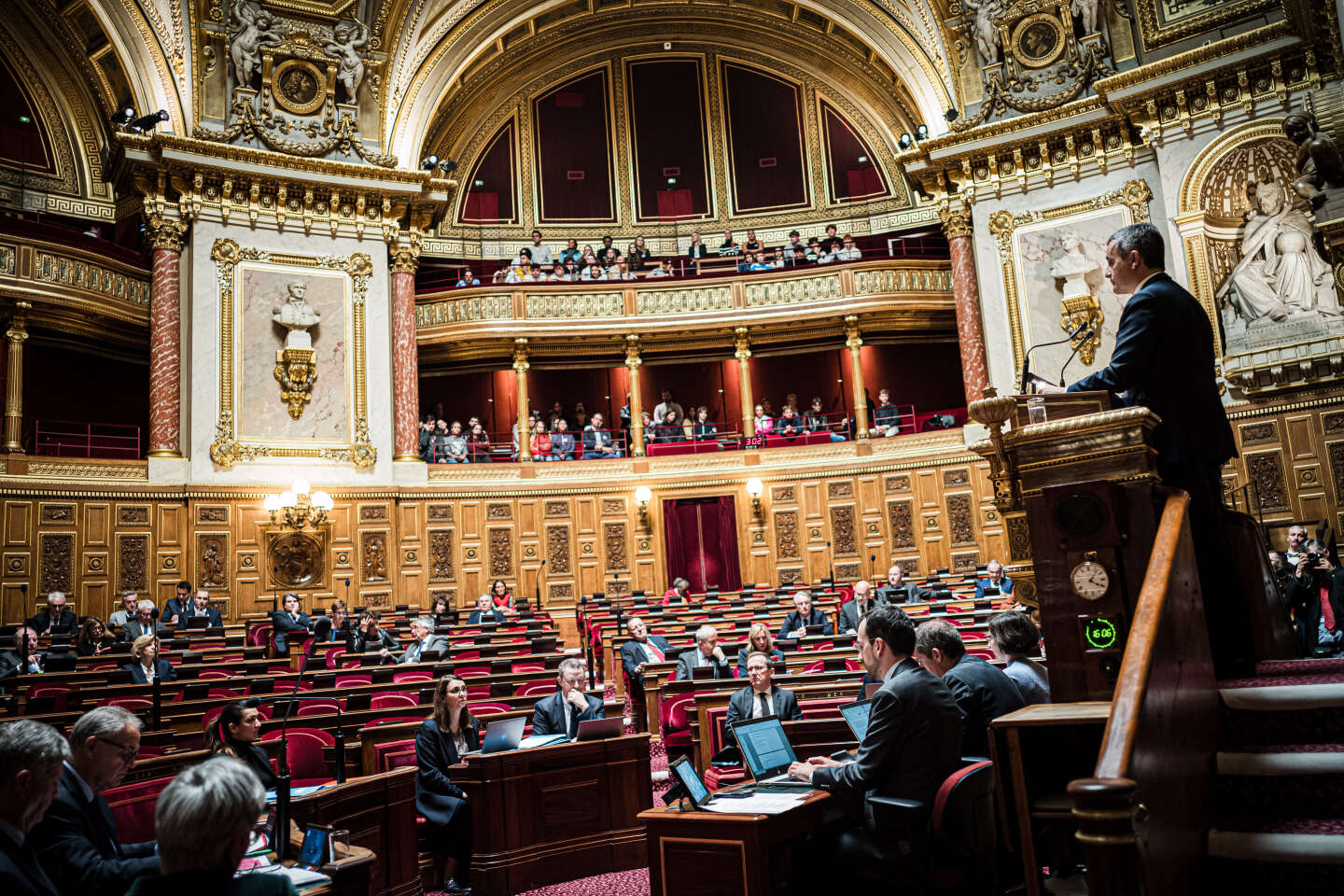


Rarely has the path taken by a piece of legislation been so long, so winding and so full of pitfalls. The French government's bill "to control immigration and improve integration" finally reached the floor of the Sénat on Monday, November 6, having changed form and nature several times throughout the long process. It has become a mutant text revealing the contradictions and impasses of the political landscape ever since President Emmanuel Macron lost his absolute majority in the Assemblée Nationale, a year ago.
Jointly announced with great fanfare in the fall of 2022 by two ministers, Gérald Darmanin (interior) and Olivier Dussopt (labor), the text, originally conceived as balanced, contains a "firmness" component (facilitated expulsions) and a "humanity" component (regularization of undocumented migrants working in sectors where there are labor shortages). Darmanin was meant to speak to the right and Dussopt to the left, in the hope of drawing the necessary support from opposition parties to pass the bill.
But there was a problem: Instead of convincing members of the opposition on either side, this balancing act has pricked them. The right-wing Les Républicains (LR) party refuses to vote in favor of the text unless Article 3, which provides for the regularization of some undocumented workers, is removed, on the grounds that granting residence permits to undocumented migrants working in sectors experiencing labor shortages would encourage arrivals. But the left-wing branch of Macron's coalition insists it cannot vote for a repressive text stripped of its social component.
Supposed to embody Macron's search for transpartisaship, the bill illustrates his exhaustion (or his twilight?). It enacts the return of the right-left divide. In mid-September, Sacha Houlié, the president of the Assemblée's law committee, and a member of Macron's Renaissance party, co-signed an open letter in the left-wing newspaper Libération in favor of regularizations, with a slate of left-wing MPs. At the time of the July reshuffle, Houlié had turned down Prime Minister Elisabeth Borne's offer to take the overseas territories portfolio, which is under Darmanin's authority. "We're too far apart ideologically for this pairing to work," he explained.
A blind spot
It's only a short step from there to saying that the clash of conceptions of this bill heralds the shake-up that awaits the post-Macron era – a step already taken by those who believe that mainstream parties will find their feet again, and are betting on the right (Darmanin) or on the left (Clément Beaune, current minister of transport, who dreams of conquering Paris City Hall in 2026) to create a political identity and make space for themselves
You have 55% of this article left to read. The rest is for subscribers only.
